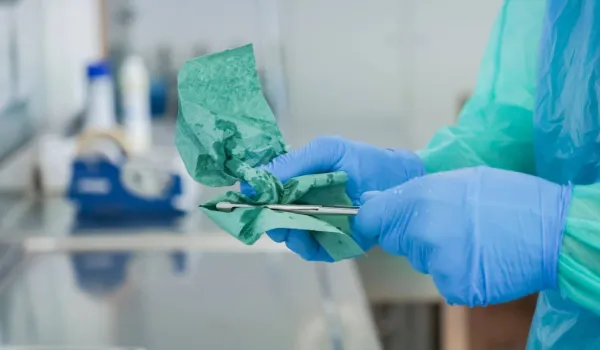
Did you know that approximately 30 million children and adults in the United States have diabetes, according to The American Diabetes Organization? November is American Diabetes Month - a time devoted to educating the nation about the impact this disease has on those affected by it to focus attention on research, prevention, and treatment.
WHAT IS TYPE 1 DIABETES?
Formerly called juvenile diabetes or insulin-dependent diabetes, Type 1 is an unpreventable, genetic autoimmune disease. There is currently no cure for Type 1 diabetes, and the life-threatening condition usually occurs in children and young adults. Approximately 5 percent of people with diabetes have Type 1.
Because the body does not produce insulin - a hormone that the body needs to transport glucose from the bloodstream into the cells of the body - people with Type 1 require multiple daily injections of insulin or pump-infused insulin. The daily care of a pediatric patient with Type 1 diabetes includes multiple blood glucose checks, a healthy eating plan, and regular physical activity. With proper treatment and support, children of all ages can learn to manage their diabetes and enjoy long and healthy lives.
WHAT IS TYPE 2 DIABETES?
Insulin resistance, or the body's inability to make and/or use insulin properly, cause Type 2 diabetes, the most common form of the condition. While genetics can play a role in the development, carrying excess weight is a major risk factor. Unlike Type 1 diabetes, Type 2 does not always require treatment with medications and can often be prevented and managed with lifestyle habits that include a healthy diet and exercise.
WARNING SIGNS OF TYPE 1 DIABETES IN CHILDREN
Early detection and treatment of diabetes are vital for reducing the risk of complications. Symptoms in children often develop quickly, sometimes manifesting over a period of just weeks, according to the Mayo Clinic. You might notice your child experience the following symptoms:
- Extreme hunger. Because insulin is not transporting the blood sugar, or energy, to the cells, the child's muscles and organs become "hungry," which results in a large increase in appetite.
- Weight loss. Even though your child is consuming more food and calories, she may begin to lose weight rapidly. This is often the first sign of Type 1 diabetes in children.
- Increased thirst. The build-up of sugar in the blood pulls fluid from the child's tissues, causing extreme thirst.
- Frequent urination. This is the result of increased fluid intake.
- Fatigue and lethargy. Because the cells are not getting enough sugar to provide energy, your child may tire easily.
- Breath odor. Your child's breath may smell sweet or fruity.
- Irritability or moodiness. Children with undiagnosed Type 1 diabetes may suddenly act differently and display extreme emotions.
PROMISING RESEARCH AND THERAPIES
Research at the University of Pittsburgh is finding ways to inhibit the chronic inflammation associated with autoimmune diseases, including Type 1 diabetes. Dr. Jon Piganelli uses antioxidants to reduce inflammation in immune cells and prevent the development of autoimmune diabetes in mice. His studies hold promise for the development of therapies to treat Type 1 diabetes.
The American Diabetes Association hosts 43 summer camps across the U.S. where more than 5,300 children with diabetes join with peers to receive education on managing their disease. Surveys show that the children gain greater confidence and emotional well being after attending a camp. Most importantly, they experience significant improvements in their ability to control blood sugar levels.
A career in nursing can lead to rewarding patient care with children diagnosed with diabetes. Concorde offers programs in nursing and other health care programs for students interested in careers to change their futures.
Take The Next Step Towards a Brighter Future
We have a Concorde representative ready to talk about what matters most to you. Get answers about start dates, curriculum, financial aid, scholarships and more!




